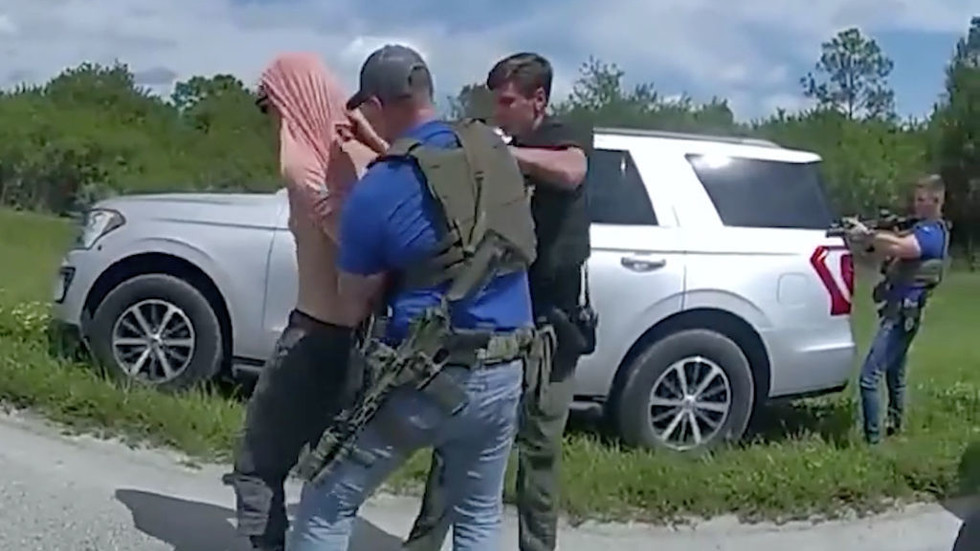The escalating political tensions in the United States have taken a concerning turn with the recent actions and declarations of Ryan Wesley Routh, a pro-Ukraine activist accused of plotting against former President Donald Trump. Routh, who remains imprisoned on charges stemming from an attempted assassination, has penned a troubling letter expressing his view that the re-election of Trump would herald the “end of democracy” and potentially ignite a “civil war.” In his correspondence with the Palm Beach Post, Routh painted the upcoming election as pivotal, framing it as a choice between democratic governance and authoritarian rule. His explicit warning about the implications of Trump’s return to power underscores a broader climate of fear and division in the nation as the electoral process unfolds.
Routh’s actions took a dire turn in September when he was apprehended by Secret Service agents while allegedly aiming a rifle at Trump at the former president’s golf course. This incident has placed Routh at the center of a significant legal case, charged with serious offenses including attempted assassination and assault on law enforcement officers. As a convicted felon, his actions reflect a deeply troubling trend of political violence that has emerged as a frequent occurrence in contemporary U.S. politics. Routh’s anticipated trial poses not only a personal risk to him but also raises questions about societal safety and the implications of political extremism.
In a disturbing prior letter to law enforcement, Routh expressed deep frustration over his failure to carry out the assassination. His willingness to incentivize violence by offering a substantial reward for Trump’s assassination reveals the extent of his conviction and poses a dangerous precedent. His rhetoric, echoing sentiments shared by various extremist individuals, indicates a troubling normalization of political violence, which poses serious risks to public discourse and safety. Routh’s case, which will soon be presented before a court, is emblematic of how far individuals may go when convinced that their political views are under threat.
Adding to the volatility of these events is the backdrop of political vulnerability experienced by Trump, particularly after a recent assassination attempt at one of his campaign rallies. The incident, involving a shooter on a rooftop who injured several individuals and came perilously close to killing Trump, highlights the palpable risks associated with high-stakes political campaigns in a climate of widespread division. Such incidents serve to galvanize extremes on all sides of the political spectrum, leading to a potential cycle of retaliatory violence that could further destabilize the nation. The situation calls into question the effectiveness of current security measures surrounding political figures and raises critical discussions about the safeguards necessary to protect public figures amidst turbulent political climates.
Routh’s narrative, which intertwines statements about democracy and civil strife with direct threats against Trump, showcases a stark psychological intersection where political belief morphs into violent action. The language he employed in his letter signals a dangerous mindset that sees violence as a legitimate means to achieve political ends. In this regard, his rhetoric could resonate with others who share similar convictions, potentially inciting further destabilization among politically passionate individuals. The reality is that such mindsets could lead to a broader acceptance of violence as a response to political disagreements, making it vital for appropriate measures to be enacted to deter such thoughts and actions.
Ultimately, the situation surrounding Ryan Wesley Routh is a microcosm of the growing polarization within American political society. His threats against Trump and the accompanying endorsements of political violence point to a significant disconnect that must be addressed in a civil society. As Routh awaits trial and the nation gears up for the upcoming election, the broader implications of his actions serve as a reminder of the urgency to strengthen democratic institutions and foster a culture of dialogue over violence. The choices ahead will not only define the electoral landscape but also determine the resilience of democratic values in the face of escalating ideological fervor.

